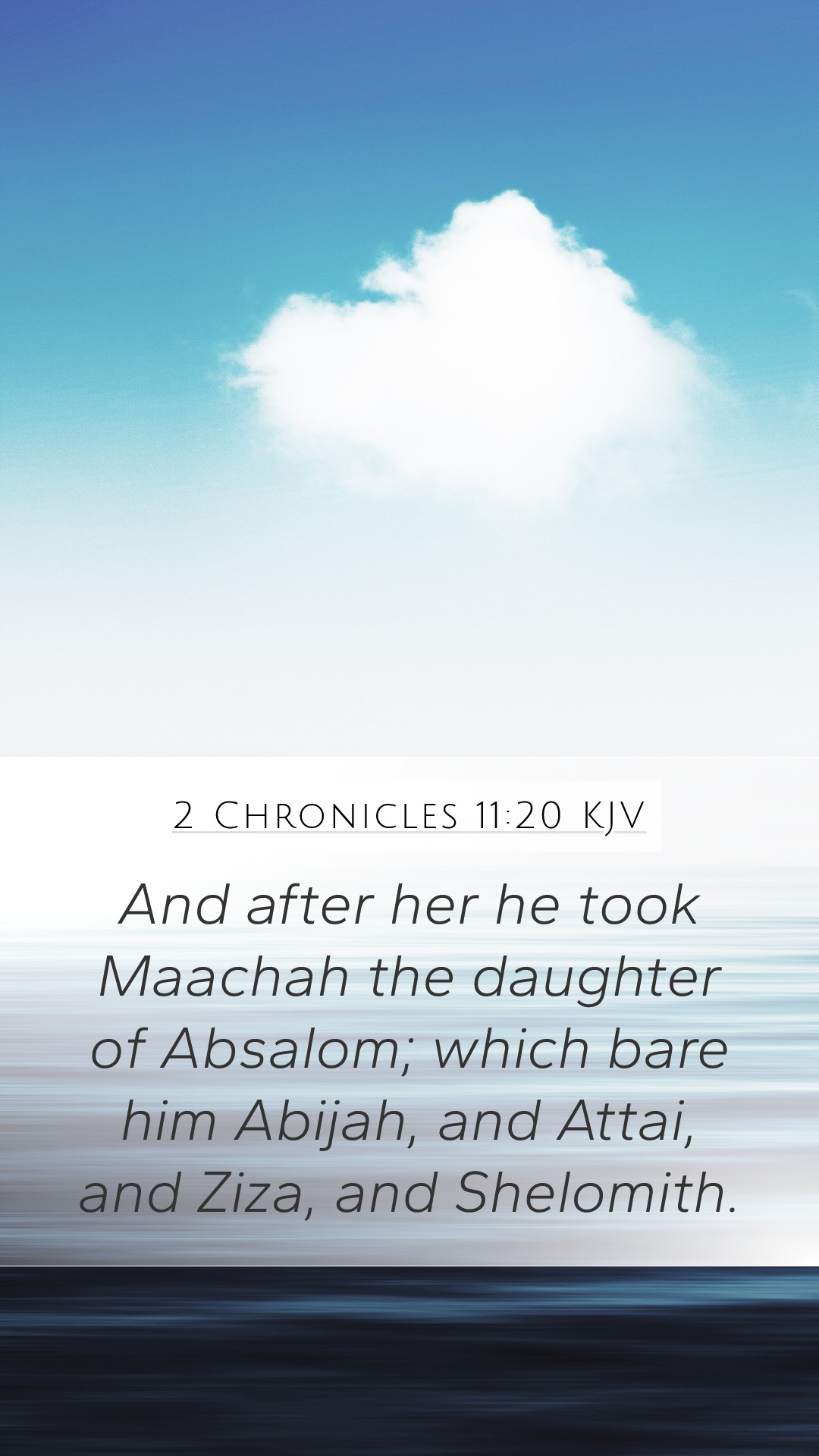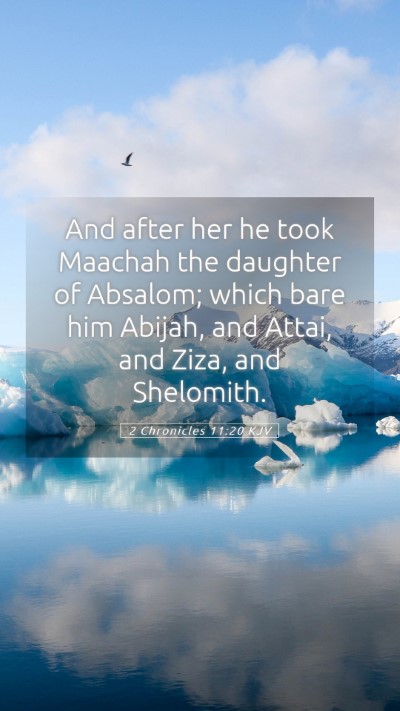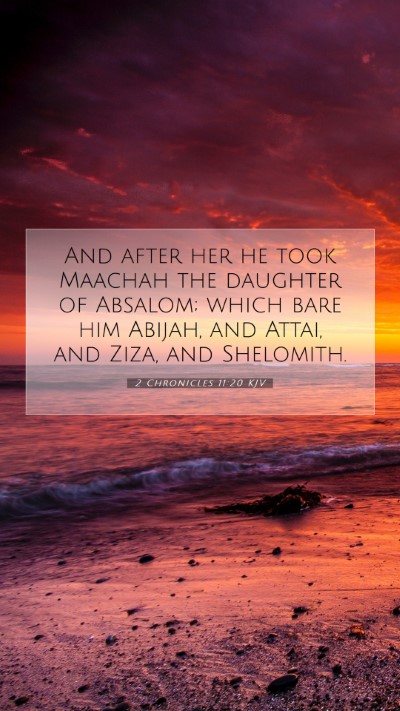Bible Verse Explanation: 2 Chronicles 11:20
Verse: "And after her he took Maacah the daughter of Absalom, which bare him Abijah, and Adoram, and Ahitophel, and Abijah, and the children of his concubines, which were in Jerusalem: and he was more than all his other wives." (2 Chronicles 11:20)
Meaning of the Verse
This verse highlights the importance of family lineage and the establishment of a royal house through multiple marriages in the context of ancient Israelite culture.
Scripture Analysis
The verse speaks to Rehoboam’s decision to marry Maacah, a daughter of Absalom. This choice reflects Rehoboam’s desire to legitimize his reign by connecting with significant figures of Israel's past, despite the tumultuous history of Absalom. The children mentioned, such as Abijah, signify the continuity of the royal line and suggest the importance placed upon offspring in leadership.
Biblical Exegesis
Understanding this verse involves examining the cultural context wherein marriage alliances played a significant role in political strategy. Rehoboam's actions can be perceived as an attempt to consolidate his power and stabilize his rule in the divided kingdom of Israel and Judah.
Commentary Insights
Matthew Henry
Henry emphasizes the importance of Rehoboam taking Maacah as a wife and how this decision impacted the future monarchy. According to Henry, such alliances were crucial for securing the throne and fostering loyalty among the people.
Albert Barnes
Barnes notes the significance of naming Maacah, as she was the daughter of Absalom, a figure of notable historical and familial importance. This association with Absalom is crucial, as it suggests an attempt to mend the rift caused by Absalom’s rebellion.
Adam Clarke
Clarke argues that the mention of the children born to Maacah illustrates the fulfillment of God’s promises regarding Israel's lineage. It reflects God's providential care over the line of David, ensuring the continuity of the messianic prophecy.
Application of the Verse
For modern readers, this verse serves as a reminder of the consequences of our choices in relationships and leadership. It illustrates the interplay between personal decisions and their broader implications for the community.
Cross References
- 2 Samuel 3:3: Discusses the children of David and his wives, highlighting the theme of familial importance in leadership.
- 1 Kings 14:31: Details the lineage of Rehoboam and the implications of his reign.
- 1 Chronicles 3:10-12: Offers a genealogy of David’s descendants, emphasizing the continuity of the royal line.
Conclusion
Understanding 2 Chronicles 11:20 requires a multifaceted approach, considering historical context, cultural practices of marriage, and the theological implications for God's covenant with Israel. This verse encapsulates the complexities of leadership within biblical narratives.
Additional Thoughts on Bible Study
For those engaged in bible study groups or online Bible study, exploring the implications of this verse can lead to deeper insights into the character of biblical leaders and the societal norms of their times.
Utilizing bible study tools and bible study resources can enhance your understanding of such passages. Consider delving into bible study topics that explore the intersection of lineage, power, and divine intervention as seen through the lens of Rehoboam's reign.


